For truck drivers, the question of how to get better gas mileage in a truck is not just a matter of sheer cost-effectiveness but one of environmental awareness. By implementing a few simple strategies and making the right choices, truck drivers can significantly lower their fuel consumption and ensure more efficient operation of their vehicles.
This article is intended to serve as a comprehensive guide for truck drivers seeking to optimize their fuel usage, achieve better gas mileage and conserve nature. It covers a range of practical tips and techniques to help drivers develop fuel-efficient driving habits and obtain the crucial skill of getting better gas mileage.
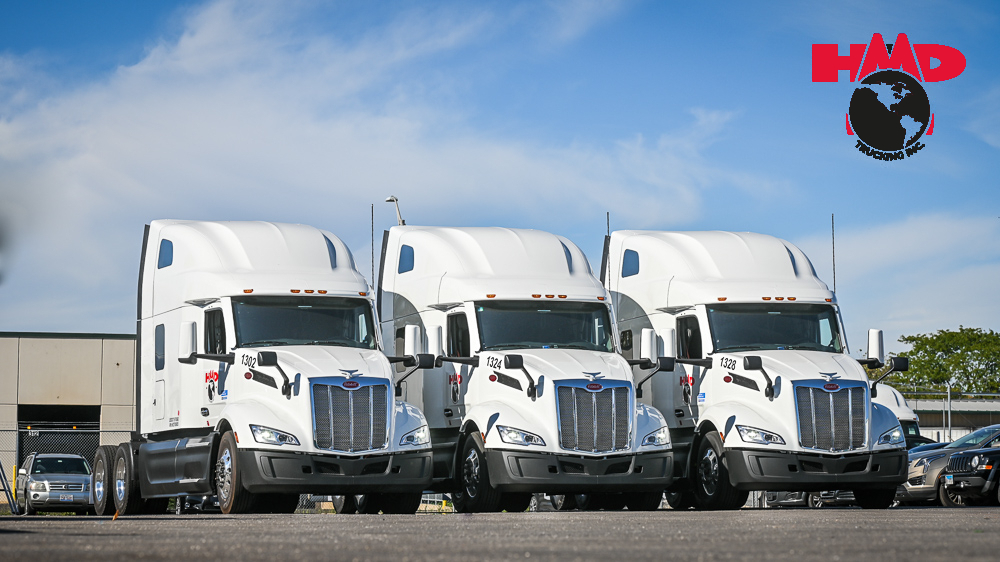
There are 2 main types of vehicles, gasoline- and diesel- powered. In general diesel-powered semi-trucks tend to be far more fuel-efficient than gasoline-powered ones. The reason for such extra fuel economy of semi-trucks is that diesel fuel packs more energy into every gallon than gasoline fuel does. Moreover, diesel-powered trucks are designed to run at lower RPM and offer high torque output at lower speeds, which increases the average truck mpg. The difference in fuel efficiency between these two semi-truck types can also be attributed to a significant difference in fuel energy density, combustion process and technology in general. However it ought to be noted that diesel trucks typically have lower idling fuel economy.
While gasoline automobiles dominate the US market, trucks and buses are now almost exclusively diesel-powered. So, in this article we will focus on diesel trucks.
Contents:
Semi-Truck Fuel Capacity
Let us learn more about semi-truck fuel capacity.
How Many Gallons of Diesel Does a Semi Hold?
The amount of diesel that a semi-truck can hold varies depending on the size and configuration of the truck's fuel tanks, and a typical 18 wheeler can hold a fuel reserve of 120 to 150 gallons. However, this is the typical range, and certain trucks may have larger or smaller fuel tanks depending on their requirements and hauling capacity (100 - 300 gallons).
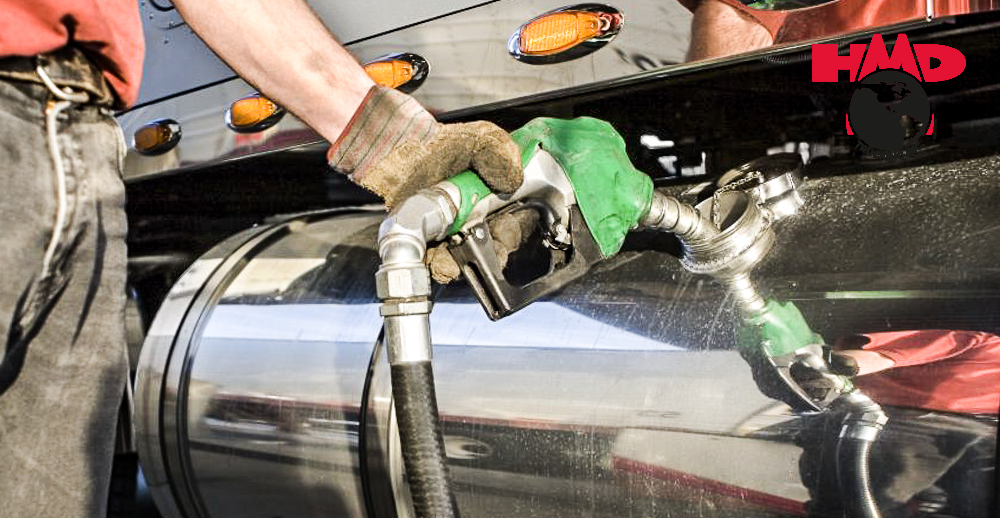
Each tank is positioned on either side of the vehicle, and diesel is distributed between them to maintain a proper balance. Considering that the weight of diesel fuel is about 7 pounds per gallon, this means that a full tank of fuel can weigh anywhere between 875 and 2100 pounds.
How to Use Available Fuel More Efficiently?
When it comes to managing fuel in semi trucks, drivers should aim at filling up their tanks to approximately 95% of the total fuel volume, regardless of whether it is 120 or 150 gallons.
The practice is recommended for a few important reasons:
- Leaving a small amount of space in the tank allows for some air to be present, preventing potential spills from the fuel storage system. Overfilling the tank can lead to diesel fuel spilling out through the overflow valves, resulting in both fuel wastage and environmental hazards that could harm fellow drivers.
- It is also advisable for drivers to never let the fuel tank remain completely empty. Most truckers avoid letting the fuel level drop below 25%. This precaution is important because contaminants like dirt and bacteria tend to accumulate at the bottom of large fuel tanks. Moreover, the suction system in place is designed to draw fuel from above the very bottom of the tank, further reinforcing the need to maintain a minimum fuel level.
By following these guidelines, truck drivers can minimize the risk of spills and avoid potential issues associated with pollutant buildup in their fuel tanks, thus improving the overall fuel economy of semi-trucks.
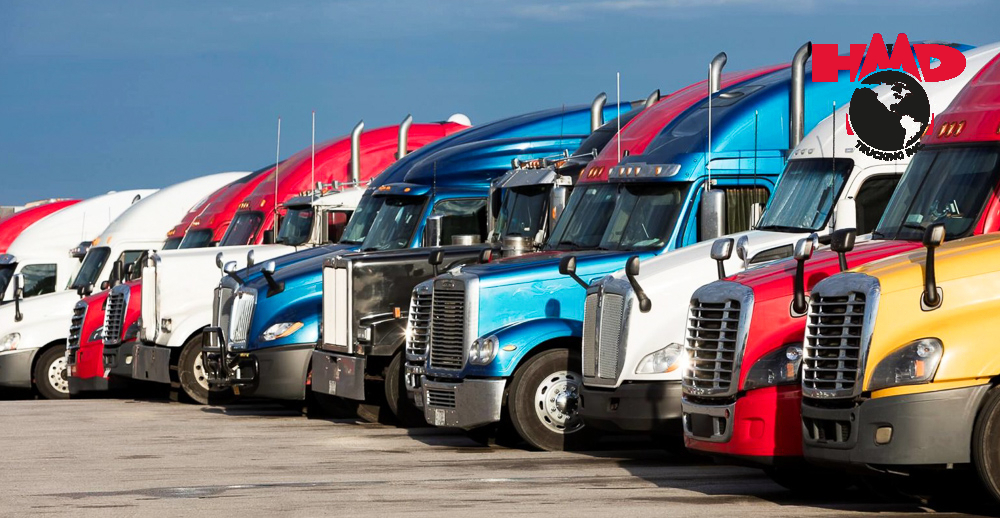
How Many Mpg Do Diesel Trucks Get?
The semi trucks mpg value is crucial or the fuel economy. Mpg is an abbreviation for miles per gallon, representing the distance the vehicle can cover for each consumed gallon of fuel.
On average, mpg for diesel trucks is typically around 6 to 8. However, this can vary significantly based on the specific truck and its characteristics.
One more important factor that we should keep in mind is the idle fuel efficiency and idle fuel economy, which we are going to discuss in the next section.
How Much Fuel Does a Semi Truck Use Idling?
According to a U.S Energy Department report, a heavy-duty truck has an idle fuel use of around 0.8 gallons per hour. However, idling fuel consumption can range from 0.4 to 1 gallon per hour, depending on various factors. Remember, though, that all figures on fuel consumption and diesel truck gas mileage, including those mentioned here, are approximated averages and can vary depending on various factors specific to the truck and the operating conditions. Therefore, monitoring and managing potential idle fuel waste is crucial to reducing fuel costs and minimizing environmental impact.
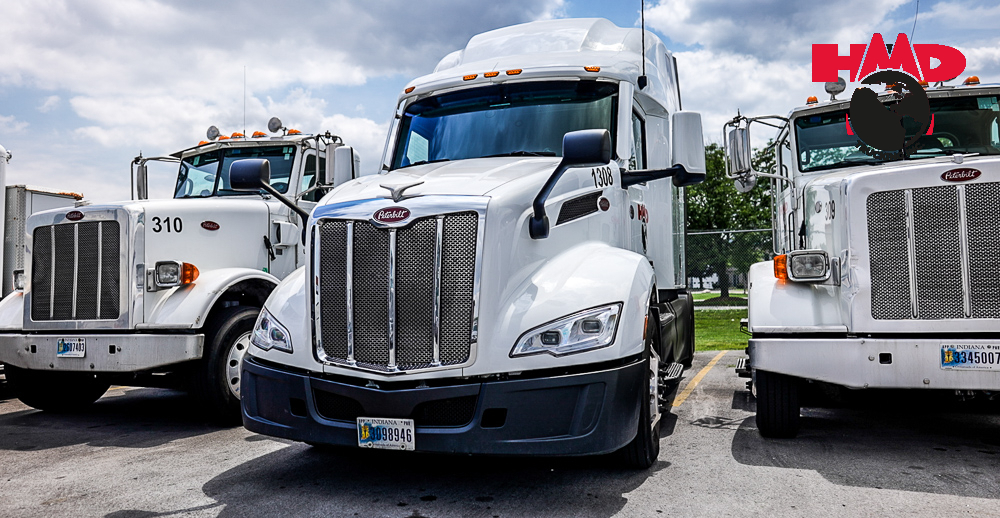
How Much Fuel Does a Loaded Diesel Semi Consume?
On average, a loaded semi trucks mpg is between 6 to 8 miles per gallon.
However, the fuel consumption of a loaded semi-truck can vary depending on various factors: the specific truck model, engine and engine efficiency, driving conditions, terrain, load weight, and driver behavior. Modern trucks can feature onboard fuel monitoring systems that provide real-time data on fuel consumption, allowing drivers to track and optimize fuel efficiency while driving.
According to the Society of Motor Manufacturers and Traders (SMMT), an average truck carrying a payload of 26 tons has an estimated fuel consumption of 13 gallons per 100 miles traveled.
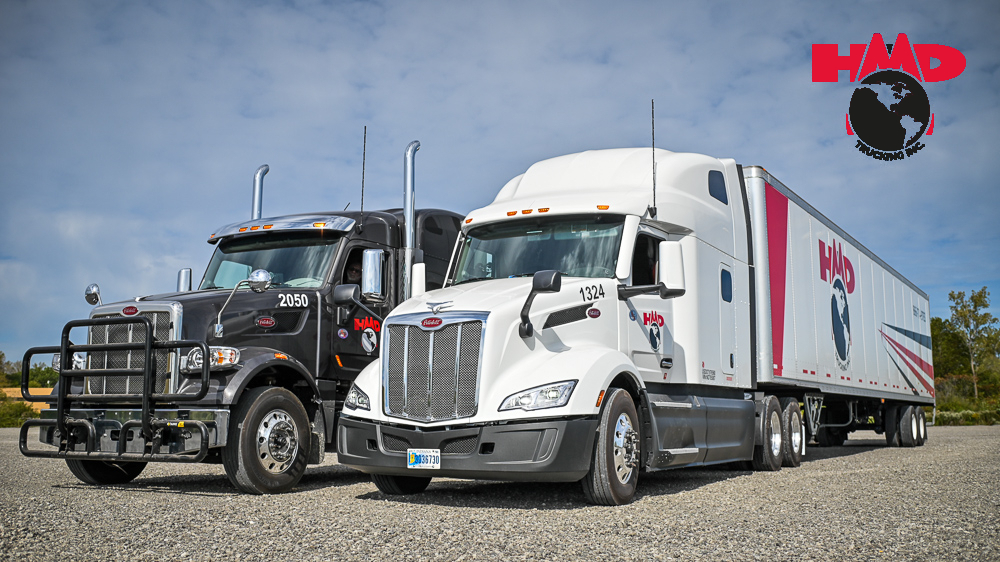
How to Get Better Gas Mileage in a Truck?
Factors such as excessive idling, aerodynamic drag, tire pressure, vehicle maintenance and driver behavior play a significant role in influencing fuel consumption.
Proper tire pressure and vehicle maintenance, such as regular tune-ups and maintenance checks, ensure that the truck is running at its optimal level of fuel consumption.
In addition to this, certain driving techniques and habits like maintaining a steady speed, planning routes efficiently, and avoiding rapid acceleration or braking can all contribute to improving gas mileage. Let’s look at each of the driving habits in some more detail.
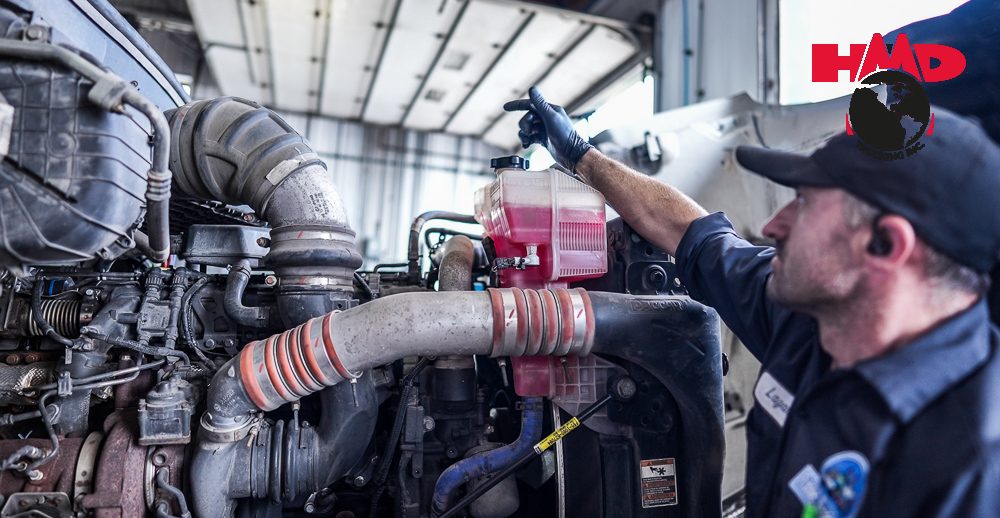
Follow the Maintenance Schedule
Regular maintenance is crucial to ensuring that your truck operates at its peak efficiency. Schedule routine inspections and adhere to the manufacturer-recommended service intervals. Keep your engine properly tuned, change air filters regularly, and use high-quality motor oil. Promptly addressing mechanical issues, such as faulty oxygen sensors or exhaust leaks, can significantly improve fuel economy.
Maintain a Proper Tire Pressure
Maintaining an optimal tire pressure is essential to fuel efficiency.
Underinflated tires have a higher rolling resistance, resulting in decreased gas mileage. Regularly check the tire pressure and inflate the tires to the recommended levels specified in the truck manual. Properly inflated tires not only improve fuel efficiency but also enhance safety and tire longevity.
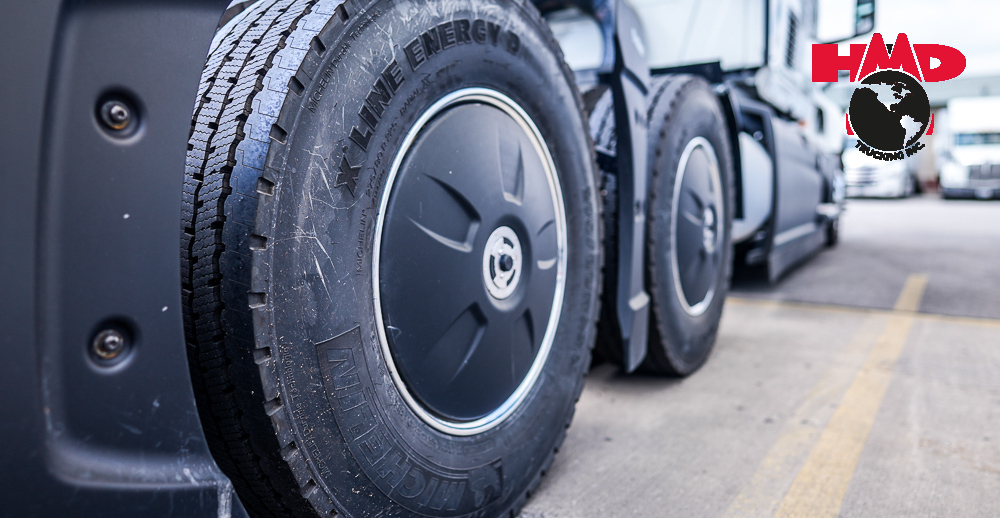
Use the Right Fuel
Choose high-quality fuels and consider additives that can enhance fuel efficiency. Fuel additives clean the fuel system, reduce friction and improve combustion, resulting in better gas mileage.
Monitor and Optimize the RPM
Pay attention to your truck's revolutions per minute (RPM) and aim to keep that figure within the manufacturer's recommended range. Operating at higher RPMs consumes more fuel. Shift gears appropriately and use the engine's power efficiently to maintain optimal RPM levels.

Develop Good Driving Habits
Your driving habits have a significant impact on fuel consumption. Avoid aggressive driving behaviors, such as rapid acceleration or hard braking. Smooth and gradual acceleration, maintaining a consistent speed, and anticipating the traffic flow can help improve gas mileage.
Additionally, avoid unnecessary idling fuel consumption without moving the truck forward, while improving the overall idling fuel consumption efficiency.
Utilize Cruise Control
When appropriate, use cruise control to maintain a steady speed. This helps avoid unnecessary speed fluctuations and promotes fuel efficiency, especially on long highway stretches.

Reduce Drag of the Truck
Aerodynamic drag can significantly impact fuel efficiency, especially at higher speeds. Keep the truck's windows closed while driving on highways, as open windows create additional drag. Consider adding aerodynamic features like wind deflectors or streamlined side mirrors to reduce air resistance.
Leverage Technology
Take advantage of technology advancements, such as onboard telematics and fuel management systems.
These systems provide the following:
- real-time data on fuel consumption.
- information about the driving behavior.
- recommendations on route optimization.
All of these will help you to make informed decisions and improve efficiency.
Optimize the Route
Planning your route effectively can help to minimize mileage and reduce fuel consumption. Always use navigation systems or route planning applications that consider factors like traffic congestion and road conditions, and keep your maps up to date. By choosing the most efficient route, you can reduce idling time, avoid unnecessary stops and starts, and optimize fuel efficiency.

Conclusion
By economizing fuel, truck drivers can reduce their overall expenses and increase their profitability. Improved fuel efficiency means spending less on fuel and maximizing the distance covered per gallon, resulting in substantial savings over time.
Improving gas mileage in a truck requires a combination of the following:
- proper maintenance.
- efficient driving habits.
- smart decision-making.
The following factors play a pivotal role in determining a truck's gas mileage:
- excessive idling.
- aerodynamic drag.
- tire pressure.
- vehicle maintenance.
- driver behavior.
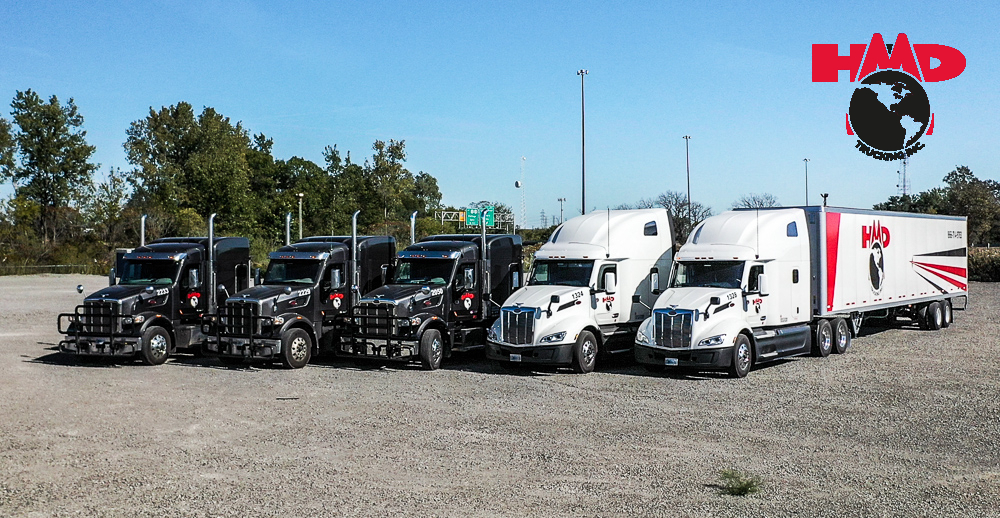
By following these strategies, including observing the maintenance schedule, maintaining an optimal tire pressure, adopting good driving habits, reducing drag and optimizing the route, a truck driver can maximize fuel efficiency and save money.
Join HMD Trucking by filling in the form below and take the first step towards the rewarding journey of a truck driver!


